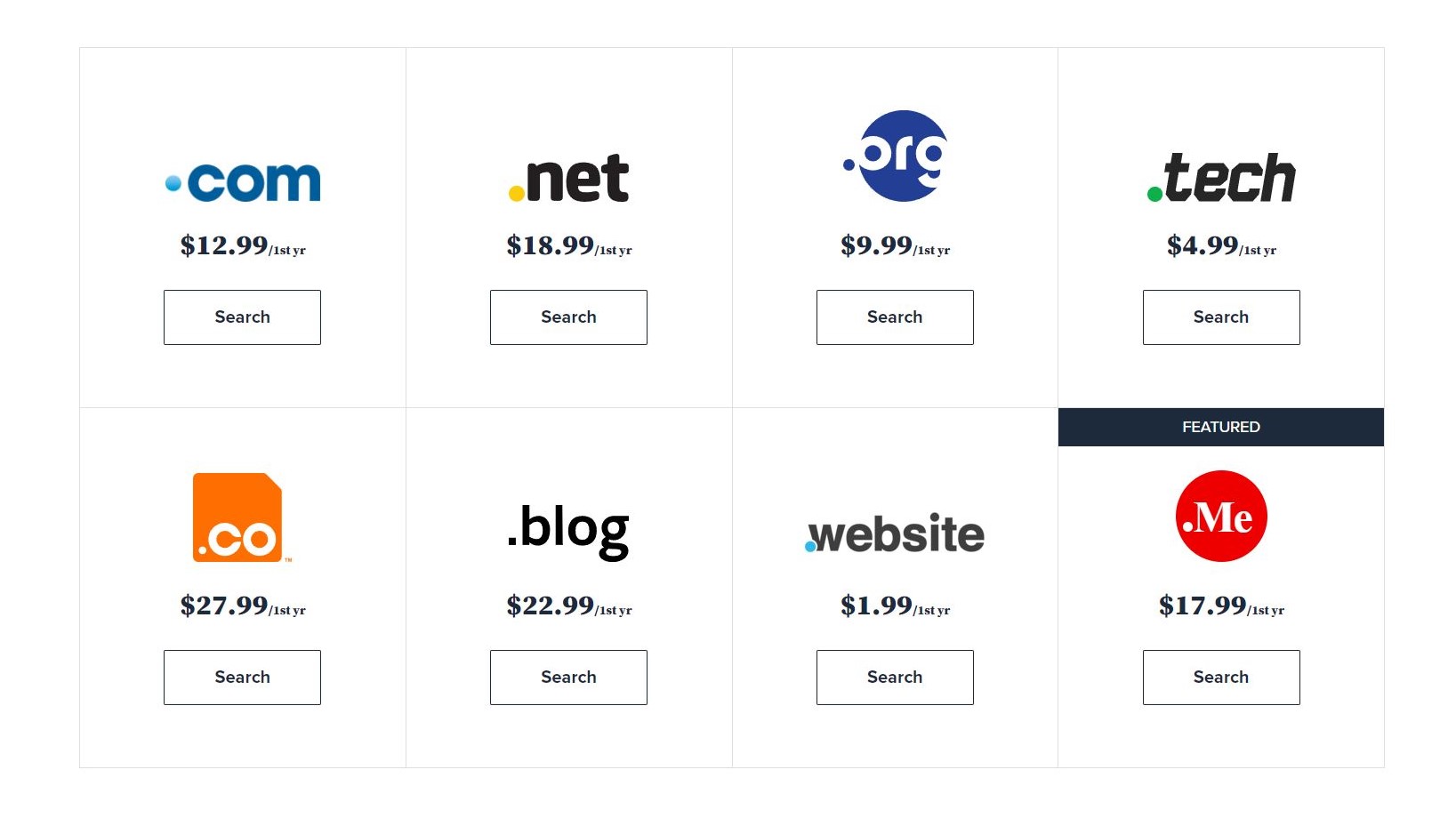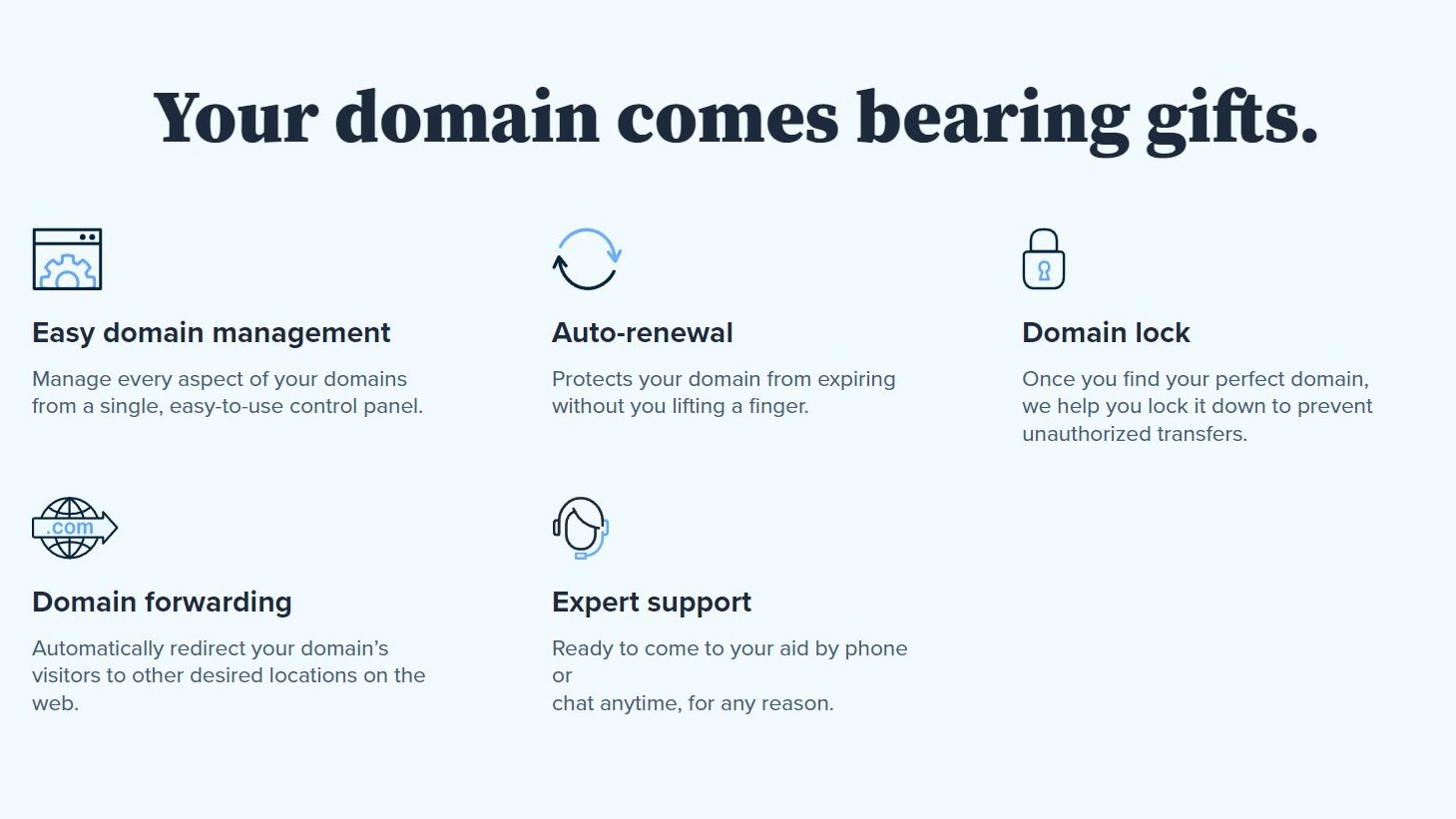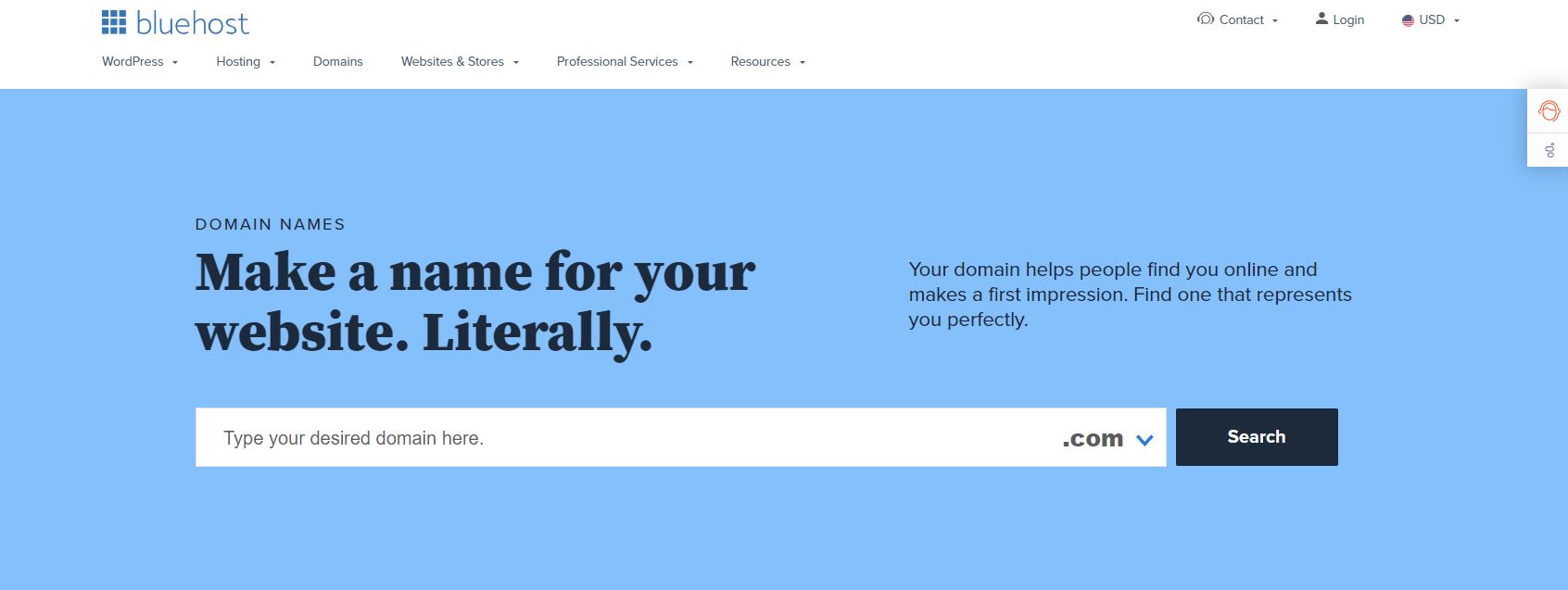TechRadar Verdict
Bluehost is a reliable domain name registrar and its platform has adequate customer support if you run into difficulties. It’s also easy to use and very secure. However, it's not without flaws, such as the constant upselling for additional services and being relatively expensive.
Pros
- +
Very secure
- +
Supports many TLDs
- +
Easy domain management
- +
Solid customer support
Cons
- -
Incessant upselling
- -
Relatively expensive
- -
Non-refundable purchases
- -
Limited domain transfers
Why you can trust TechRadar
Bluehost is a popular domain registrar and one of the leaders in its industry. The company currently hosts over 2 million domain names.
An entrepreneur named Matt Heaton founded Bluehost in 2003. In 2010, Newfold Digital (formerly Endurance International Group) acquired Bluehost. Newfold is a web hosting conglomerate that owns various web hosting services.
We tested Bluehost to give you a detailed, unbiased review. We evaluated the domain registrar based on specific criteria, including features, pricing, customer support, ease of use, etc..

Plans and pricing
Bluehost charges varying fees for domain names, generally $10 to $200 annually. Domain names with generic extensions like .COM and .NET go for between $15 and $20 yearly. These extensions are the most common ones people buy, and Bluehost offers them for a relatively affordable price. However, some extensions can get expensive. Rare ones such as .CREDIT and .LOANS cost over $100 annually.
You must pay $15 annually to enable privacy protection for your Bluehost domain. This protection blocks your contact information from the public WHOIS database.
Depending on your country of residence, Bluehost adds a VAT (Value Added Tax) to its base prices. This situation mostly affects customers residing in the European Union (EU).
Domain registration fees are non-refundable on Bluehost.
If you want to save with Bluehost you can check out our Bluehost promo codes page now.

Features
A domain name is the initial step in helping people find your website. Hence, it’s a critical consideration for any website owner. Bluehost lets you register multiple domain names on one account. You can use multiple domains on different sites or point them towards one website.
There are three classes of domain names available on Bluehost; original top-level, country-code, and new generic top-level.
Original top-level domains are the most common ones across the web; .com, .net, .biz, .info, and .org.
Country-code domains are those specific to a particular area or country, e.g., .ca (Canada), .me (Montenegro), and .co.uk (United Kingdom).
New generic top-level domains refers to all other domain extensions apart from the ones stated above. This category is the broadest and most expensive on Bluehost. It constitutes mainly uncommon domains, such as .academy, .clinic, .clothing, .finance, etc.
After registering a domain on Bluehost, it’ll be wise to enable the auto-renewal feature so that it doesn’t expire even if you forget to manually renew. Any domain set to auto-renew on your account will automatically attempt to renew for another year (as its expiry date nears) using the card assigned to your Bluehost account.
If the auto-renewal charge is successful, you'll receive an invoice through your email as a confirmation. If not, you'll receive an email notifying you of the failed charge. If you fall into the latter, you can always proceed to pay manually within your Bluehost dashboard.
You should try as much as possible to not let your domain name expire because recovering it is a lot of work. If your domain expires, Bluehost will hold it for up to 30 days as a courtesy, pending renewal. After 30 days, it'll be placed in what's known as a Redemption Period. During this period, the domain name will be inaccessible to the public and can’t be registered elsewhere. You can still recover your domain at this point, but it requires a $70 fee alongside the renewal fee associated with it.
Bluehost doesn’t offer refunds for domain registrations despite doing so for other services. Hence, ensure you make the best choice beforehand. There’s no going back once you have purchased the domain, which we consider a drawback of the platform. Many rival registrars offer refunds to their customers.
You can also transfer a domain name registered elsewhere to the Bluehost platform, but only for a few extensions; com, net, org, us, co, info, and biz. Any domain you want to transfer should be at least 60 days old with their registrar. The transfer process can take up to five days to complete, so be patient.
Every domain name usually has public information tied to it about its owner, and this information is accessible through the WHOIS database. However, you can block your information from being publicly available (for an annual fee) through Bluehost.
Interface and in use
Bluehost is pretty easy to use, starting from the sign-up process. Just head to the official website and locate the sign-up form to create an account. You must select a product before doing that. Afterwards, you can purchase multiple domain names from a single Bluehost account.
Bluehost has a modern, easy-to-use interface that people without much technical know-how can easily navigate. Hence, it's an excellent hosting choice for beginners.

Customer support
Bluehost offers customer support through live chat and telephone 24/7 and via Twitter (@Bluehostsupport). There’s also an official Knowledge Base with extensive details about navigating the platform.
The competition
Bluehost's main competitors include Namecheap, GoDaddy, and Ionos. Bluehost offers comparable services with these rivals but has more expensive plans, especially for low-volume users.
Final verdict
Bluehost is a dependable domain registrar. Buying a domain name on the platform is simple and straightforward, as is transferring it from an external registrar. The company provides excellent customer support to its customers through live chat and telephone all-round. However, we observed some drawbacks, such as the constant upselling to buy additional services.
Check out the latest Bluehost coupon codes.
Stefan has always been a lover of tech. He graduated with an MSc in geological engineering but soon discovered he had a knack for writing instead. So he decided to combine his newfound and life-long passions to become a technology writer. As a freelance content writer, Stefan can break down complex technological topics, making them easily digestible for the lay audience.

